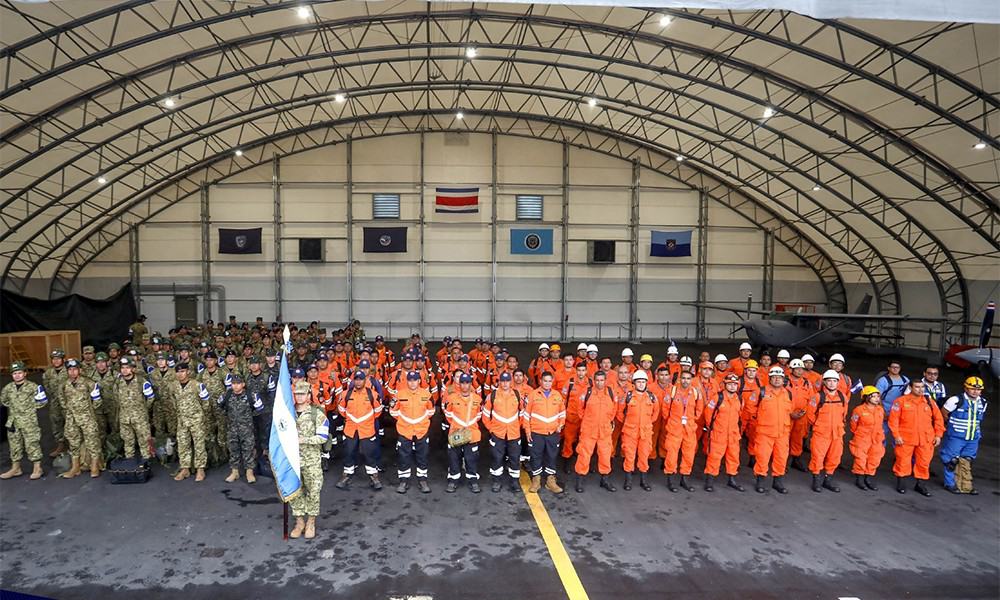On Wednesday, a group of military personnel from the Armed Forces of El Salvador arrived in Costa Rica as part of an aid brigade offered by Salvadoran President Nayib Bukele. The deployment aims to assist with the emergency response to recent torrential rains that have impacted the country.
The Salvadoran government announced the departure of 300 personnel, including army troops and specialized emergency workers, through official social media channels. “At this moment, 300 members from various units, including the USAR group, the Armed Forces, and the Medical Emergency System, are heading to Costa Rica,” read the government statement.
However, the entry of foreign troops has sparked controversy and criticism from Costa Rican lawmakers, as the nation’s Constitution requires prior approval from the Legislative Assembly for foreign military personnel to enter the country.
In response, Costa Rican deputies have requested clarification from the government regarding the Salvadoran soldiers’ arrival. Vice Minister of Foreign Affairs clarified that the personnel include firefighters, police officers, paramedics, and a limited number of Salvadoran Armed Forces members. “This group comprises volunteers from diverse fields, who are here for humanitarian purposes, not military operations,” the Vice Minister stated.
The Vice Minister also noted that the brigade arrived on commercial flights and that their work is being coordinated with Costa Rica’s National Emergency Commission (CNE).
Costa Rica’s Minister of Security, Mario Zamora, acknowledged the presence of military personnel but emphasized, “None of them carry firearms, and there are no active military operations in Costa Rica,” which aligns with the Constitution’s exceptions. Zamora compared the situation to prior instances, such as the humanitarian aid provided by unarmed Colombian and U.S. helicopters following the 2009 Cinchona earthquake.
After reviewing the Foreign Ministry’s statement, Legislative Assembly President Rodrigo Arias announced that he would allow parties to analyze the government’s explanation.
President Bukele’s official visit and the entry of Salvadoran personnel have also drawn criticism from prominent figures, including former Costa Rican Presidents Laura Chinchilla and Carlos Alvarado






